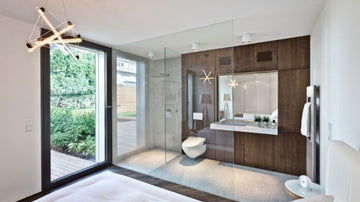In the ever-evolving realm of bathroom technology, smart toilets are making a significant splash. These innovative fixtures are not just about luxury; they offer practical advantages that cater to both comfort and sustainability. For those in the industry QA sector, understanding the benefits of smart toilets is pivotal as they become more prevalent in households worldwide.
Smart toilets integrate technology with sanitation, offering features that range from automatic lid opening to heated seats and self-cleaning systems. But what truly sets them apart are their environmental benefits, making them a crucial component of eco-friendly home designs.

Understanding Smart Toilet Technology
Before diving into the benefits of smart toilets, it's essential to grasp the technology that powers these advanced systems. At their core, smart toilets are designed to enhance the user experience while promoting efficient water usage. They often include sensors and automated systems that reduce the need for manual operation, thus minimizing the chances of contamination and improving hygiene.
For a deeper dive into how these systems work, you might find this article on smart toilet mechanisms insightful. It explores the various components that make these toilets more than just a seat in your bathroom.
Environmental and Economic Advantages
One of the standout benefits of smart toilets is their contribution to water conservation. Traditional toilets can use up to 7 gallons per flush, whereas smart toilets use significantly less, often around 1.28 gallons per flush. This reduction not only helps conserve water but also lowers the water bill, providing economic relief for homeowners.
Additionally, smart toilets often feature dual-flush systems, allowing users to choose between a full or a half flush, depending on the need. This flexibility further enhances water-saving capabilities. For those interested in integrating eco-friendly designs, check out this guide to smart bathroom designs.
Health and Hygiene Benefits
Beyond environmental perks, smart toilets offer significant health and hygiene benefits. Features such as touchless flushing and self-cleaning capabilities reduce the spread of germs and bacteria, crucial in maintaining a healthy living environment. The inclusion of bidet functions also promotes better personal hygiene compared to traditional toilet paper.
Moreover, some smart toilets feature UV sanitation, deodorizing systems, and air purifiers, all designed to enhance the overall bathroom experience. To explore brands offering these features, you can visit this list of top smart toilet brands.
Comfort and Convenience
Comfort is a significant factor driving the adoption of smart toilets. Heated seats, customizable settings, and integrated night lights are just a few features that transform the bathroom into a haven of relaxation. These features cater to the needs of the elderly and those with mobility issues, making smart toilets a practical choice for inclusive bathroom designs.
For a comprehensive understanding of how these features can enhance your bathroom, consider looking into smart bathroom technology.
Challenges and Considerations
Despite the numerous benefits, there are challenges to consider when integrating smart toilets. The initial cost can be higher compared to traditional toilets, and there might be a learning curve associated with using the technology. However, for those in the industry QA sector, these challenges are opportunities to refine product offerings and improve customer experiences.
For more insights on overcoming these challenges, you can explore this guide to smart toilets.

FAQs
What are the main features of smart toilets?
Smart toilets often feature automated flushing, heated seats, bidet functions, and self-cleaning capabilities, among others.
Are smart toilets energy efficient?
Yes, many smart toilets are designed to be energy efficient, using minimal water and incorporating power-saving settings.
How do smart toilets improve hygiene?
Smart toilets improve hygiene through touchless features, self-cleaning systems, and UV sanitation, reducing the spread of germs.
In conclusion, the benefits of smart toilets extend beyond luxury, offering practical solutions for sustainability, hygiene, and comfort. As the industry continues to innovate, these fixtures will likely become a staple in modern bathroom designs. For those in the industry QA sector, embracing these advancements can lead to more efficient and customer-friendly bathroom solutions.






